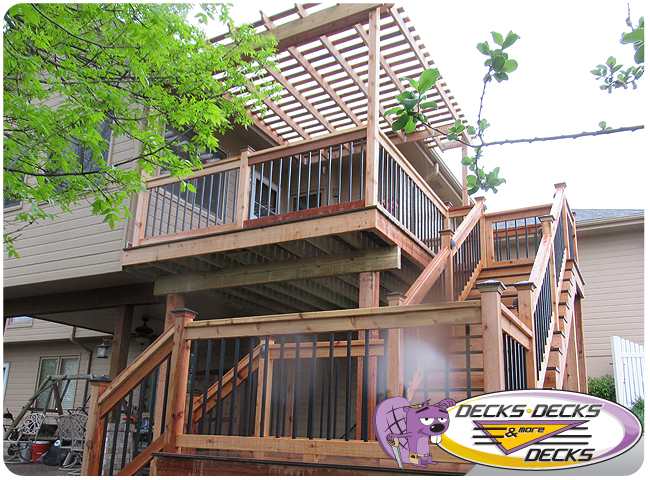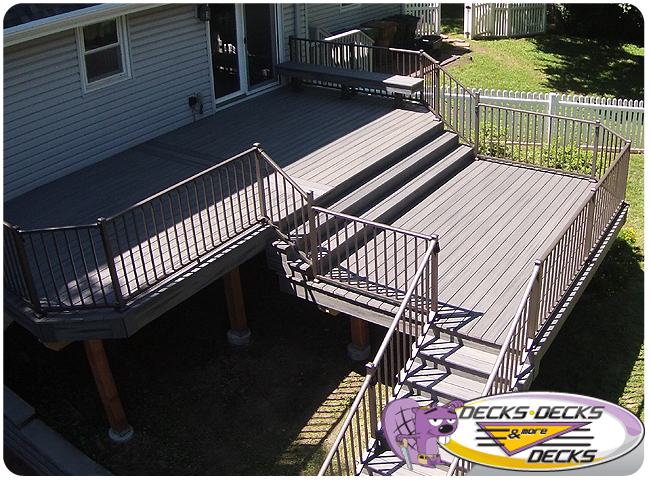10 Reasons Why Building Decks Is Not a DIY Task
Building a deck can be a tempting DIY project, especially with the plethora of online resources and home improvement shows that promise easy, step-by-step instructions. However, constructing a deck involves a range of technical, safety, and aesthetic considerations that often make it more complex than it appears. Here are ten compelling reasons why building a deck is often best left to professionals rather than tackling it as a DIY task.
1. Complex Design and Planning
Overview: Designing a deck requires a thorough understanding of structural integrity, local building codes, and design principles. While DIY guides might provide basic designs, a professional can help create a plan that maximizes space and ensures safety.
Why It Matters: Inadequate planning can lead to design flaws, wasted materials, and a deck that does not meet local codes or your functional needs.
2. Understanding Building Codes
Overview: Building codes and regulations vary by location and are crucial for ensuring the safety and legality of your deck. Professionals are familiar with these codes and can ensure that your deck meets all legal requirements.
Why It Matters: Failing to adhere to building codes can result in fines, safety hazards, and the need for costly modifications or even the removal of the deck.
3. Structural Integrity
Overview: Properly constructing a deck requires knowledge of load-bearing, joist spacing, and beam sizing. Structural integrity is vital to ensure that the deck is safe and durable.
Why It Matters: Incorrectly installed or insufficiently supported structures can lead to a deck that is unstable or unsafe, posing risks to users and potentially causing damage to your home.
4. Tool and Material Expertise
Overview: Building a deck requires a range of specialized tools and high-quality materials. Professionals have access to the right tools and know how to use them effectively.
Why It Matters: Using the wrong tools or materials can lead to poor results and potentially hazardous conditions. Professionals ensure that the correct materials are used and that the deck is built to last.

5. Time and Labor
Overview: Deck construction is labor-intensive and time-consuming. While it might seem manageable as a DIY project, the actual time required can be substantial, especially if you’re unfamiliar with the process.
Why It Matters: Underestimating the time required can lead to incomplete or rushed work, resulting in a deck that is not up to standard or finished poorly.
6. Safety Concerns
Overview: Deck building involves working at heights, handling heavy materials, and using power tools. Safety is a major concern, and professionals are trained to handle these risks effectively.
Why It Matters: DIY deck building without proper safety measures can lead to accidents or injuries. Professionals are equipped with safety gear and practices to minimize risks.
7. Finishing and Detailing
Overview: A well-built deck requires attention to detail in finishing touches such as railings, stairs, and waterproofing. Professionals have the skills to achieve a high-quality finish.
Why It Matters: Poor finishing can affect the deck’s appearance and functionality. Attention to detail ensures that the deck is both attractive and functional.
8. Cost Considerations
Overview: While DIY projects may seem cheaper initially, hidden costs can add up, including tools, materials, and potential mistakes. Professionals often provide a clear estimate and can help avoid unexpected expenses.
Why It Matters: Budget overruns are common in DIY projects due to unforeseen challenges. Professionals can provide a detailed cost breakdown and manage expenses more effectively.
9. Permits and Inspections
Overview: Many areas require permits and inspections for deck construction. Professionals handle the paperwork and coordinate inspections to ensure compliance with regulations.
Why It Matters: Skipping permits or inspections can lead to legal issues and complications with property value. Professionals ensure that all necessary permits are obtained and that inspections are passed.
10. Long-Term Value and Warranty
Overview: Professional deck builders often offer warranties on their work, providing peace of mind and protection against future issues. They also ensure that the deck adds long-term value to your home.
Why It Matters: A DIY deck may lack a warranty and could result in additional repair costs down the line. Professional work typically comes with a warranty, ensuring that the deck remains in good condition for years to come.
Conclusion
Building a deck involves more than just assembling materials and following a guide. The complexity of design, the importance of adhering to building codes, and the need for structural integrity are just a few reasons why it’s often best to leave deck construction to professionals. By hiring an experienced deck builder, you ensure that your deck is safe, durable, and beautifully crafted, providing you with a valuable addition to your home that will stand the test of time.
Check Out This Blog!
 free estimates: (402) 690-1050
free estimates: (402) 690-1050

